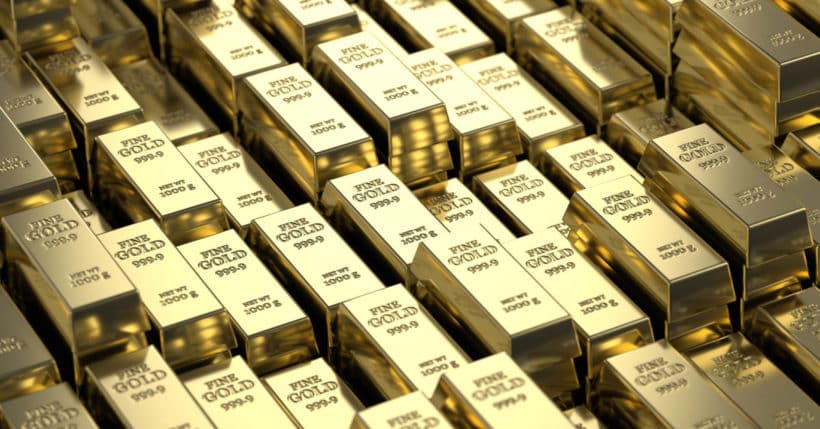
Gold prices notched a new record on Monday for a second day in a row — with spot prices touching $2,100 as the global rush for bullion appears set to continue.
Gold prices are on course to hit fresh highs next year and could remain above $2,000 levels, analysts said, citing geopolitical uncertainty, a likely weaker U.S. dollar and possible interest rate cuts.
Prices of the yellow metal have risen for two consecutive months with the Israel-Palestinian conflict boosting demand for the safe-haven asset, while expectations of interest rate cuts have provided further support. Gold tends to perform well during periods of economic and geopolitical uncertainty due to its status as a reliable store of value.
“The anticipated retreat in both the USD and interest rates across 2024 are key positive drivers for gold,” UOB’s Head of Markets Strategy, Global Economics and Markets Research, Heng Koon How, told CNBC via email. He estimated that gold prices could reach up to $2,200 by the end of 2024.
Similarly, another analyst is bullish on bullion’s outlook.
“There is simply less leverage this time around vs 2011 in gold … taking prices through $2,100 and putting $2,200/oz in view,” said Nicky Shiels, head of metals strategy at precious metals firm MKS PAMP.
All that glitters is gold
Spot gold prices rose to a new record high of $2,110.8 per ounce Monday before giving up some gains. It is currently trading at $2,084.59.
On Friday, gold touched $2,075.09 to surpass a precious intraday record high of $2,072.5 on Aug. 7, 2020, according to LSEG data.
Bart Melek, head of commodity strategies at TD Securities, expects gold prices to average $2,100 in the second quarter of 2024, with strong central bank purchases acting as a key catalyst in boosting prices.
According to a recent survey by the World Gold Council, 24% of all central banks intend to increase their gold reserves in the next 12 months, as they increasingly grow pessimistic about the U.S. dollar as a reserve asset.
“This means potentially higher demand from the official sector in the years to come,” Melek said.
A possible policy pivot by the Fed in 2024 could also be on the cards, he added. Lower interest rates tend to weaken the dollar and a softer dollar makes gold cheaper for international buyers thus driving up demand.
The Fed started its steady stream of rate hikes in March 2022 as inflation climbed to its highest in 40 years, diminishing gold’s appeal.
Higher interest rates hurt demand for gold, which does not pay any interest, as assets such as bonds become more lucrative due to their higher yields.
On Nov. 29, Fed Governor Christopher Waller said he envisioned easing policy if inflation data continues to ease over the next three to five months, prompting analysts to forecast a spike in gold prices.
On Friday, while Fed Chairman Jerome Powell pushed back on expectations for aggressive interest rate cuts ahead, his remarks indicated the Fed may at least be done hiking for now.
“We believe the main factors buoying gold in 2024 will be interest rate cuts by the U.S. Fed, a weaker U.S. dollar and high levels of geopolitical tension,” BMI, a Fitch Solutions research unit, said in a recent note.

